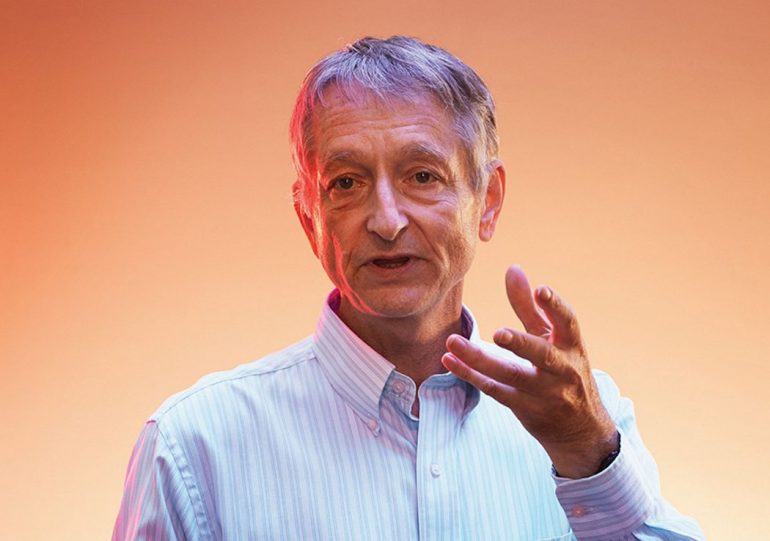The Vector Institute, on Wednesday, announced plans to work with the University of Toronto to hire three new tenure-stream faculty to be focused on deep learning.
The positions are being created in recognition of Geoffrey Hinton, co-founder and chief scientific advisor at Vector, as well as professor emeritus at the University of Toronto, who, earlier this year, won the 2018 Turing Award. Known as the “Nobel prize of computer science,” Hinton was recognized alongside fellow Canadian-based AI researcher Yoshua Bengio, scientific director at Mila, and New York-based Yann LeCun, chief AI scientist for Facebook.
“Our community is a magnet for talented individuals, enabling us to continue building on Dr. Hinton’s pioneering research.”
“Thanks in no small part to Professor Hinton’s work, the University of Toronto is recognized as a global hub of AI research and excellence,” said University of Toronto vice president and provost Cheryl Regehr. “It’s only fitting that we pay tribute to his achievements by re-doubling our efforts to recruit top AI and machine learning talent.”
Vector and the University of Toronto are currently hiring the three new tenure-stream faculty members to be part of the university’s department of computer science in the faculty of arts, department of electrical and computer engineering, and the department of laboratory medicine and pathobiology. Successful candidates will also be eligible for nomination as Canada CIFAR AI Chairs through their involvement with Vector.
“These new positions and their integration with the Vector Institute will serve growing interest in AI among students, prepare them for careers in this burgeoning field, and strengthen the ability of both institutions to advance innovation and knowledge in AI,” Regehr added.
RELATED: The next global AI hub will be built in the Canadian Prairies
The announcement of the new positions was made at Vector’s ‘Evolution of Deep Learning Symposium’ being held this week in celebration of deep learning contributions from Hinton. The plan to hire the three deep learning faculty comes just as eight new faculty members and 29 affiliate researchers are joining Vector. The new faculty, who hold appointments at universities across Canada, bring Vector’s total number of faculty members to 34.
The eight new Vector faculty are:
- Jakob Foerster – starting as an assistant professor at the University of Toronto, in the fall 2020. During his PhD at the University of Oxford, Foerster helped bring deep multi-agent reinforcement learning to the forefront of AI research, interning at Google Brain, OpenAI, and DeepMind. Foerster currently works as a research scientist at Facebook AI Research in California.
- Animesh Garg – an assistant professor of computer science at the University of Toronto, leading the Toronto People, AI, and Robotics (PAIR) research group. Garg works on enabling robot learning and studies machine learning methods in robotics for interactive perception, reinforcement, and control. He also works as a senior research scientist at Nvidia in machine learning and robotics.
- Chris Maddison -joining the departments of computer science and statistical sciences at the University of Toronto in the summer of 2020. Maddison works on methods for machine learning, with an emphasis on scale in deep learning applications. He was previously a student of Geoffrey Hinton’s and was a founding member of DeepMind’s AlphaGo project.
- Sheila McIlraith – a professor of computer science at the University of Toronto. Prior to joining the University of Toronto, McIlraith spent six years as a research scientist at Stanford, and one year at Xerox PARC. She is also a fellow of the Association for the Advancement of Artificial Intelligence (AAAI).
- Gennady Pekhimenko – an assistant professor with the University of Toronto’s department of computer science. Pekhimenko was previously a researcher in systems research at Microsoft Research and received his PhD in computer science from Carnegie Mellon University.
- Toniann Pitassi – a professor and Bell Canada Chair in Information Systems with the department of computer science at the University of Toronto. Pitassi was named an ACM Fellow in 2018.
- Angela Schoellig – an assistant professor at the University of Toronto Institute for Aerospace Studies (UTIAS), where she heads the dynamic systems lab. Schoellig is also an associate director of the Center for Aerial Robotics Research and Education (CARRE).
- Yaoliang Yu – an assistant professor of computer science at the University of Waterloo. Yu’s research areas include machine learning, statistics, and optimization, with applications in computer vision and multimedia.
“Our community is a magnet for talented individuals, enabling us to continue building on Dr. Hinton’s pioneering research by training graduate students, upskilling industry professionals, and leading consortium projects to enable AI adoption in Canadian companies and institutions,” said Garth Gibson, president and CEO at Vector. “We are thrilled to have these highly accomplished and collaborative individuals join and advance Vector’s vision.”
Hinton himself noted that current neural network technology, which his original breakthrough focused on, came from “dedicated professors pursuing basic research with brilliant graduate students in a few leading universities.”
“With today’s announcement, the University of Toronto and the Vector Institute are ensuring that [professors and students] will continue to play a major role in the future of this game-changing technology,” he added.
Vector, which was launched in 2017 alongside other leaders in Toronto’s AI ecosystem, currently has more than 400 active researchers, including the 34 faculty members, 65 faculty affiliates, 41 postgraduate affiliates, and more than 240 post-doctoral fellows and students.


